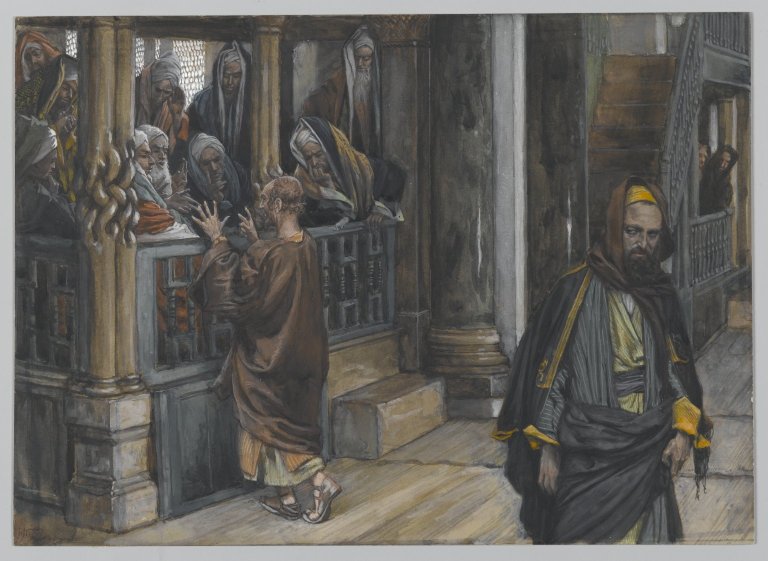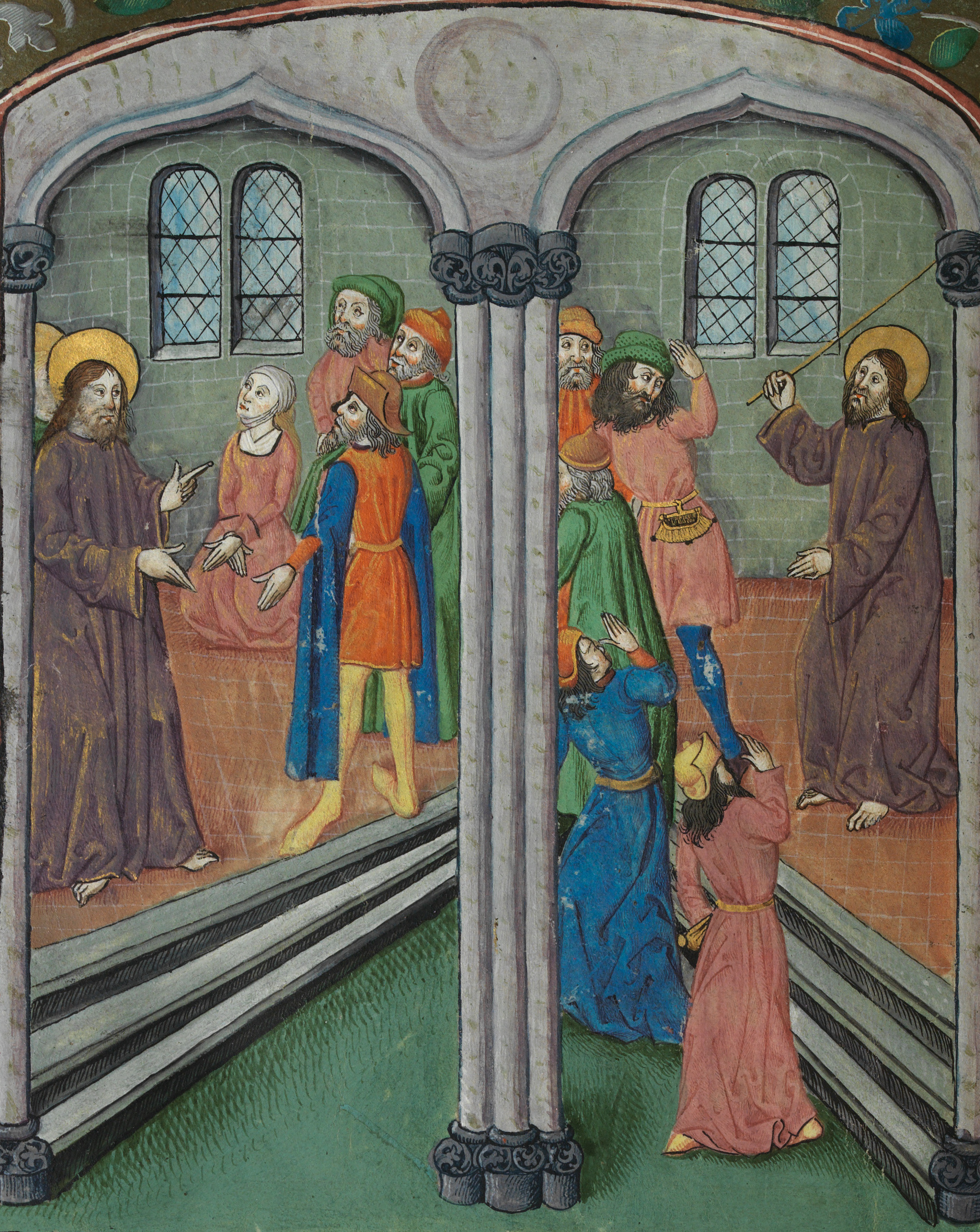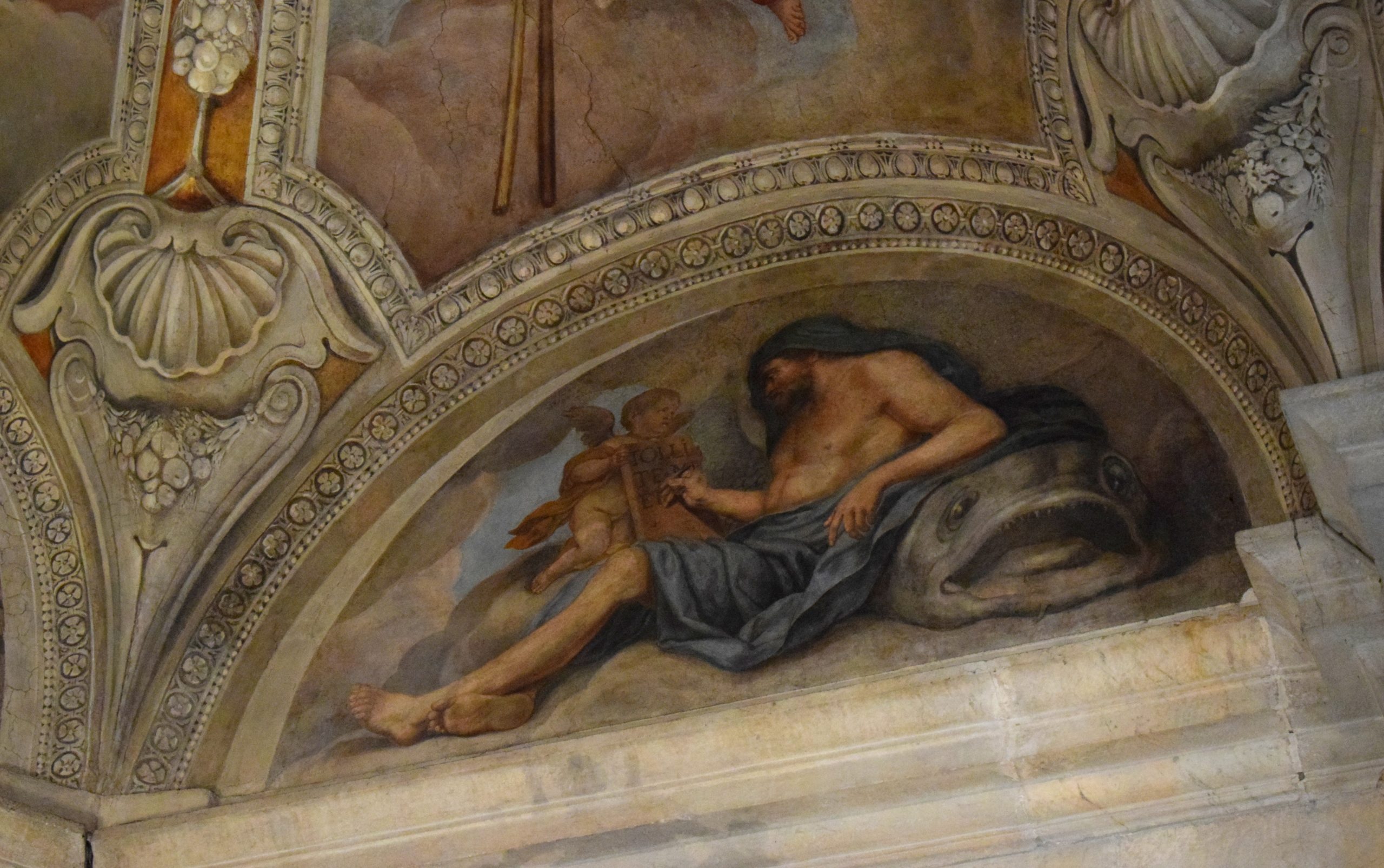
This coming Sunday is the Twenty-Third Sunday in Ordinary Time. To help you prepare to enter more deeply into Matthew 18:15-20 at worship, here is an excerpt from The Navarre Bible commentary series.
18:15–17. Here our Lord calls on us to work with him for the sanctification of others by means of fraternal correction, which is one of the ways we can do so. He speaks as sternly about the sin of omission as he did about that of scandal (cf. Chrysostom, Hom. on St Matthew, 61).
There is an obligation on us to correct others. Our Lord identifies three stages in correction: 1) alone; 2) in the presence of one or two witnesses; and 3) before the Church. The first stage refers to causing scandal and to secret or private sins; here correction should be given privately, just to the person himself, to avoid unnecessarily publicizing a private matter and also to avoid hurting the person and to make it easier for him to mend his ways. If this correction does not have the desired effect, and the matter is a serious one, resort should be had to the second stage—looking for one or two friends, in case they have more influence on him. The last stage is formal judicial correction by reference to the Church authorities. If a sinner does not accept this correction, he should be excommunicated that is, separated from communion with the Church and sacraments.
18:18. This verse needs to be understood in connexion with the authority previously promised to Peter (cf. Mt 16:13–19): it is the hierarchy of the Church that exercises this power given by Christ to Peter, to the apostles and their lawful successors—the Pope and the bishops.[1]
To dig deeper in your own devotional time, contemplate these verses in the Verbum Bible Study software. Or, if you don’t yet own it, request The Navarre Bible: Saint Matthew’s Gospel—available this month at a special discount.
[1] Saint Matthew’s Gospel. (2005). (pp. 129–130). Dublin; New York: Four Courts Press; Scepter Publishers.





